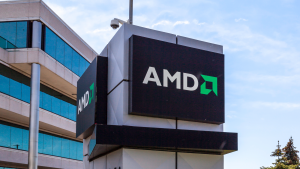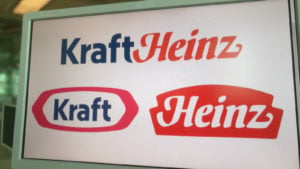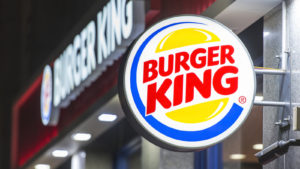Look no further if you’re considering stocks to sell since the market rally has taken a breather. After posting historic results in this year’s first half, led by a 30% gain in the tech-heavy Nasdaq index (its best performance in 40 years), all three major U.S. indices are in the red for August. The Dow Jones Industrial Average, S&P 500, and Nasdaq have each fallen 3% in the last month, with some analysts forecasting more declines. Of course, nobody has a crystal ball, and much will depend on the future direction of interest rates and their impacts on the U.S. economy. Despite a predicted recession at the outset of the year, it has yet to arrive.
But that could change in coming months if interest rates remain elevated for an extended period or rise further. Indeed, U.S. Federal Reserve Chair Jerome Powell just warned that the central bank is prepared to take rates higher, if needed, to lower inflation back down to its 2% annualized target. Recent earnings reports from retailers showing a slowdown in consumer spending has cast an even darker cloud over stocks. Here’s a look at seven stocks to sell now.
The Gap (GPS)

Hope arrives for clothing retailer the Gap (NYSE:GPS) with new CEO Richard Dickson, who was previously an executive at toymaker Mattel (NASDAQ:MAT). Dickson will have his hands full trying to turn the struggling company around, which just reported mixed financial results amid weakening consumer spending. During the second-quarter earnings call, Gap executives talked about a “weak environment” and a “choppy consumer market.”
Gap announced EPS of 34 cents versus the 9 cents Wall Street expected. Revenue in the quarter ended June 30 totaled $3.55 billion compared to $3.57 billion that analysts forecast. Revenue declined 8% from a year earlier. Looking ahead, Gap is forecasting net sales to decrease in the low double-digit range for the current third quarter. Pressure on Gap’s operations continues due to declining market share and a tough operating environment. Over the last five years, GPS stock has fallen 66%.
Advanced Micro Devices (AMD)

The recent blowout earnings of rival chipmaker Nvidia (NASDAQ:NVDA) seem to have scared investors away from Advanced Micro Devices (NASDAQ:AMD). The stock of AMD fell more than 5% the day after Nvidia knocked the cover off the ball with its Q2 results. Nvidia’s dominance with the microchips and semiconductors used to power artificial intelligence (AI) applications has some analysts worrying aloud about AMD’s ability to keep up and remain competitive.
Of course, AMD is doing its best to keep pace. In June, the company announced a new advanced AI microchip, called the MI300X, that it says will be a game changer. However, the new chip will not be ready to ship to customers until the very end of this year, and that’s if it remains on schedule. In the meantime, Nvidia is expected to continue racing ahead in an AI market where it retains a 70% share of chips and semiconductors. While AMD stock has gained 60% so far this year, its share price has pulled back 8% over the last month. You’ll want to consider adding it to your list of stocks to sell right now.
Kraft Heinz (KHC)

The stock of Kraft Heinz (NASDAQ:KHC), the food company behind Kraft Dinner, Heinz Ketchup and Jell-O, has struggled since the organization was formed through a 2015 merger. If that’s not enough to convince you to add KHC to your stocks to sell now, consider that over the last five years, it has declined 42%, including a 17% decrease so far in 2023. Even Warren Buffett, who owns the stock, has publicly said he regrets becoming a shareholder. The company recently reported yet another quarterly earnings miss, which it blamed on higher prices and inflation-weary consumers.
The most recent blow to the company came with the news that Kraft Heinz CEO Miguel Patricio has resigned after four years. Patricio joined Kraft Heinz in 2019 and was tasked with helping to reverse years of poor sales and market share losses. Patricio now says he plans to step down in early 2024. His successor, Carlos Abrams-Rivera, is the current president of Kraft Heinz’s North American business. The leadership change comes as demand eases for Kraft Heinz’s products as higher prices push consumers to cheaper generic alternatives.
Restaurant Brands International (QSR)

Restaurant Brands International (NYSE:QSR), the company behind Burger King, Popeyes, Firehouse Subs, and Tim Hortons coffee shops, has recorded lackluster gains in its share price this year. And things could get worse if consumer spending declines further in the coming months. The company continues to try and rebrand and resurrect the Burger King quick-service restaurant chain. It’s currently getting most of its growth from Tim Hortons, which operates primarily in Canada, and is akin to Dunkin’ Donuts up north.
The company did report better-than-expected Q2 financial results, announcing EPS of 85 cents versus 77 cents that was expected on Wall Street. Revenue of $1.78 billion was ahead of the $1.75 billion analysts forecast. Restaurant Brands said it invested $11 million in restaurant upgrades, including renovations, during Q2 of this year. However, the latest earnings did nothing to help QSR stock, which is up only 5% year-to-date and up only 18% through five years.
Nutrien (NTR)

Nutrien (NYSE:NTR), the world’s largest producer of potash and the third largest producer of nitrogen fertilizer, continues to see its stock slump amid lower prices for fertilizer, weak foreign sales, and drought conditions in many farm areas of the U.S. and Canada. In the last 12 months, NTR stock has fallen nearly 40%, including a 15% decline this year. The situation at Nutrien appears to be getting worse, with the company recently reporting an 88% decrease in its Q2 net income.
Nutrien announced Q2 net income, or profit, of $448 million, down substantially from $3.6 billion a year earlier. Revenue in the April through June period totaled $11.7 billion, down 19% from $14.5 billion during the same quarter of 2022. EPS was just 89 cents, down from $6.51 a year earlier. Worse, the company telegraphed that it expects lower prices and weak demand to continue negatively impacting sales for the rest of 2023 and into 2024. NTR is a definite in the stocks to sell category.
Boeing Co. (BA)

It continues to be one step forward, two-steps back for Boeing Co. (NYSE:BA). The aircraft manufacturer continues to wrestle with problems in its 737 Max airplanes, even as it tries to put several fatal crashes behind it. The company announced on Aug. 24 that a new manufacturing flaw in its 737 Max aircraft is likely to delay deliveries to customers worldwide, hurting both its production targets for this year and its future earnings.
Specifically, the company said it found fastener holes on the aft pressure bulkhead of some 737 Max aircraft to be improperly drilled, leading to needed repairs and delays. The defect is the latest in a string of manufacturing problems that have plagued Boeing as it tries to ramp up production and meet global demand from airlines. Through the end of July, Boeing delivered 309 planes to customers worldwide, trailing the 381 delivered by archrival Airbus (EPA:AIR) during the same period.
While BA stock is up 14% this year, the share price is trading 35% lower than where it was at five years ago, landing it on the stocks to sell now list.
Canadian Pacific Kansas City (CP)

It’s still early days for the newly merged railway Canadian Pacific Kansas City (NYSE:CP). While the company is the only railway that spans all of North America, with tracks covering Canada, the U.S. and Mexico, Canadian Pacific Kansas City is laboring under some onerous rules from the regulators that approved the $31 billion combination finalized in April of this year. These include a unique seven-year oversight period and the inability to layoff any workers during that time.
The company has also warned that this summer’s strike at British Columbia seaports is likely to negatively impact this year’s third quarter. Canadian Pacific Kansas City has said that the dockworkers’ strike cost it $80 million a day in lost revenue. Q2 earnings, which were the first for the newly merged railway operator, were encouraging, with net income up 74% and revenues up 44% from a year earlier. However, investors appear to be in wait-and-see mode. CP stock has gained only 0.15% over the last 12 months.
On the date of publication, Joel Baglole held a long position in NVDA. The opinions expressed in this article are those of the writer, subject to the InvestorPlace.com Publishing Guidelines.
